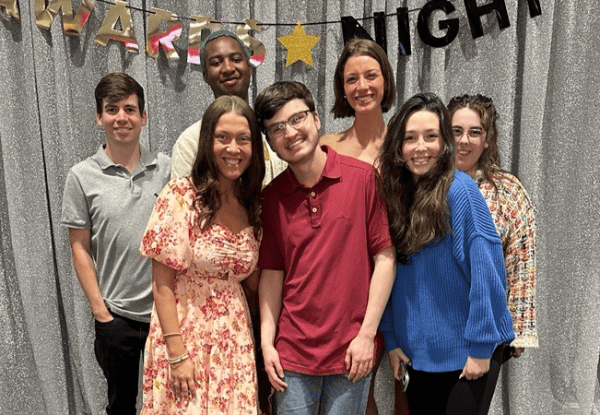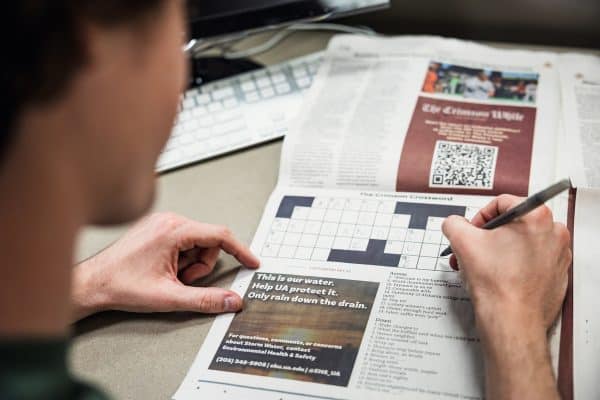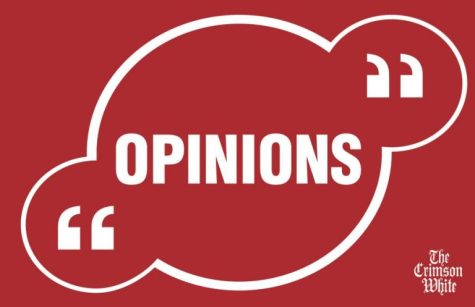Open letter: Inclusion initiatives must include everyone
October 20, 2019
This letter was delivered on Wednesday, Oct. 16 to UA President Stuart Bell and Associate Provost for Diversity, Equity and Inclusion G. Christine Taylor, as well as Interim Vice President of Student Life Kathleen Cramer and Calvin Brown, Director of Alumni Affairs and the Associate VP for University Advancement.
The letter is in response to an Oct. 8 announcement of the creation of an advisory committee to support campus diversity goals. The committee has only one openly gay staff member and also lacks representation from Asian, Middle Eastern, Pacific Islander or Native American backgrounds.
President Bell and Dr. Taylor,
We are writing you today asking that you add additional members explicitly representing the University’s LGBTQ community to the recently formed advisory committee on diversity, equity, and inclusion. We are heartened that you have taken the step to form this committee, and without question, it is a good step forward. That being said, in 2019, the lack of explicit LGBTQ representation from students in an advisory committee on campus diversity, equity, and inclusion is not acceptable. Ultimately, we ask that there be at least one LGBTQ student added to this committee, ideally an individual who is transgender and/or gender nonconforming or an LGBTQ person of color.
First, we would like to share with you the background of the LGBTQ Alumni Association and our history thus far. After a year of discussions with the National Alumni Association and inspired by the recent formation of the Black Alumni Association, we officially began our chapter in September of 2018. In our first year, we added over 170 members from 23 states and abroad, held events around the country, and raised over $5,000 in grassroots donations (with no single donation over $200) to begin The 1983 Endowed Scholarship Fund, the first endowed scholarship fund at the University dedicated to LGBTQ advocacy. We could not have done this without countless hours of volunteer leadership and the support of the National Alumni Association and of The University of Alabama community at large, and for that we are grateful.
If we were to point the mirror inward, even we, as an LGBTQ alumni chapter that strives to be as inclusive as possible, have significant work to do regarding diversity, equity, and inclusion. Our membership continues to be overwhelmingly white, male, and cisgender. Despite our best intentions and efforts, our chapter does not have full representation of our community, especially among people of color, individuals who are transgender and/or gender nonconforming, and women. Alongside the University, we share the same struggles to get these efforts right and build trust in communities that have been marginalized for far too long, even within our oft-marginalized community.
But even with our struggles, like the University, the fact is that we do have members of all races and ethnicities, as well as cisgender, transgender, and gender nonconforming individuals. We have very liberal members, and, to be sure, we have some very conservative ones as well. LGBTQ people are everywhere and take all forms, even at The University of Alabama, and our community often intersects some of our country and state’s most painful divides. As we seek to connect to individuals across these divides, we encourage the University to do the same.
The University’s current environment, no doubt, makes it difficult for LGBTQ people to thrive on campus. With a growing number of Millennial and Gen Z students identifying as sympathetic to LGBTQ issues, the University must be active in working to address the climate on campus for these students, not only for recruitment efforts but also out of a duty to prepare students for the realities of the world. There is no discipline of study or career path in which a student will not need to be prepared to interact with an increasingly diverse world, and the University must prepare students to face these realities. LGBTQ people are an integral part of that reality.
The issue of campus climate is compounded by a gap in services provided to students, specifically, a lack of full-time program staff for the SafeZone Resource Center and inadequate healthcare services (including gender-affirming care and counseling services).
Over the course of the last year, we have spoken to many individual students, faculty members, and administrators who care deeply about these issues. However, many of them feel they have a lack of institutional support and buy-in to address these issues. We have also heard from LGBTQ students who often feel ignored by the Administration or that their invitations to participate in formal processes are more an effort to placate them, rather than a genuine effort at inclusion. As alumni, we love our alma mater and truly hope she can be a nourishing mother to all. Providing a genuine space in the decision-making process for LGBTQ people improves the campus for everyone, just as when that space is provided to African Americans, Hispanic/Latinx individuals, and other diverse groups. In providing these spaces, we believe the University can take serious strides towards bridging gaps in understanding and creating a more inclusive environment for all.
In the coming months and years, we look forward to working alongside you as an active partner on these issues and to continuing this conversation as we all learn and grow on these topics. We will have some officers and members in town for Homecoming and hope you make the time to meet with us while we are in Tuscaloosa celebrating the University.
Sincerely,
Will Thomas (’10) and Chase Sanders (’13)
President and President-Elect, Alabama LGBTQ Alumni Association










